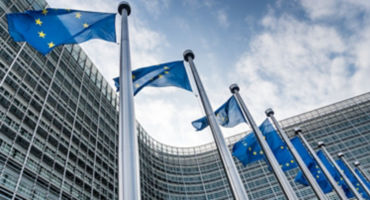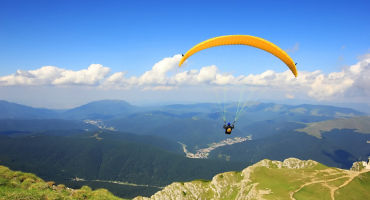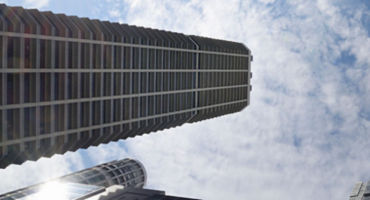Earlier this year, I met with a number of senior US, European Union (EU), and NATO officials in Brussels and across Europe to discuss the diplomatic, military, and economic implications of the widening Russia/Ukraine conflict. Here are some of my key takeaways and observations — in particular on the significant impact on US/EU relations — and my latest assessment of where this geopolitical crisis is heading in the period ahead.
Key takeaways
- Big picture: My recent meetings only strengthened my conviction that, barring an unforeseen military or diplomatic breakthrough, the Russia/Ukraine war is far from over, with potential outcomes remaining uncertain as of this writing.
- Somewhat encouragingly, as one official I spoke with put it: “The only way this ends is if Putin realizes that he can’t win militarily. Eventually, given the state of his military, combined with the sanctions and export controls, he will have no option to continue this war.”
- Russia’s increasingly brutal campaign and its revised military strategy have fortified NATO’s resolve to supply Ukraine with heavy/offensive weapons and other assistance, which is likely to produce an ugly stalemate that drags on for months or longer.
- This new battlefield dynamic comes with a still-low, but growing and significant, risk of military conflict (accidental or otherwise) between NATO and Russian forces.
- The war has upended the policy agenda in Europe and now dominates all discussions in Brussels. It has also supercharged transatlantic relations and weakened China’s diplomatic position in Europe.
- The war has highlighted Europe’s dangerous energy dependency on Russia and, as a result, has cast ongoing decarbonization efforts across Europe in an entirely new light.
- In sum, as I’ve stated several times, this is a geopolitical crisis of the highest order. We and much of the world will likely be living with the consequences, across multiple dimensions, for years to come.
Stronger US/EU relations
The war has completely changed the nature of US/EU relations — for the better. There is now widespread agreement that the transatlantic relationship is energized and is working more effectively, despite the difficulties of the Trump administration and some early stumbles by the Biden administration. Indeed, one of my contacts said: “What we’ve done over the past three months is tremendous, especially after AUKUS and Afghanistan. But when facing a war, we had no choice but to talk to each other.”
There is now also more widespread support for President Biden’s approach to foreign policy, which will likely lead to a larger role for the EU on the world stage. As my contacts said: “Biden has done an excellent job. Imagine if Trump were still in power, the trouble we’d be in right now; sanctions enforcement, export controls, arms deliveries, the humanitarian process — all of this will be done through the EU. It will play a central role.”
In addition, most observers seem to agree that China’s at-times opaque position on the war is helping to drive the US and the EU closer together. As one contact put it: “The US president has said that autocracies versus democracies is the greatest challenge of our generation. And he is right.” Another individual noted: “Everything the US is doing in Ukraine is with an eye towards China — and I think Beijing understands this.”
On NATO’s future, many of my contacts anticipated Finland and Sweden’s formal applications to join the alliance, although the process of making that happen could take “up to a year.” One official noted: “They both fit the criteria for NATO membership — they can contribute to our collective security, they are both interoperable with NATO partners, and they both have sufficient checks and balances with regard to civilian control over their militaries.”
China will also play a role in shaping NATO’s future. As one contact said: “NATO is, and will remain, a regional alliance. But our attention to China comes from the fact that China is expanding its diplomatic reach, its military, its nuclear forces. We are not seeking confrontation with China, but we are trying to understand its intentions. Russia is the urgent threat, but China is the current and future threat.”
Ongoing disruption in the energy sector
There’s a strong sense in Brussels that Europe remains deeply vulnerable to Russian energy exports: “Short term, there’s not much we can do. This dependence has been going on for 50 years and was toxic. So we will try everything we can, but it will take a minute.”
The macro impacts of Russia disrupting energy flows could be significant: “Frankly, we would be in very deep trouble; it will cost jobs, cause social insecurity, and create problems with German politics. So we can’t just stop getting gas from Russia. This is overly simplistic; we need to diversify gas sources from Russia, but we didn’t plan for this; if Russia’s gas pipelines are closed, it’s a real emergency.”
In the short term, we can expect more use of fossil fuels and continued use of natural gas as a bridge to renewables: “Coal use will be greater than previous estimates; our energy system based on Russia needs to shift, but this will require more liquified natural gas investments.” Longer term, US and EU officials remain confident that the Russia/Ukraine crisis will speed the transition to decarbonization, in Europe and globally: “The argument for green energy has never been stronger; climate change and now Russia’s invasion are driving the transition.”








